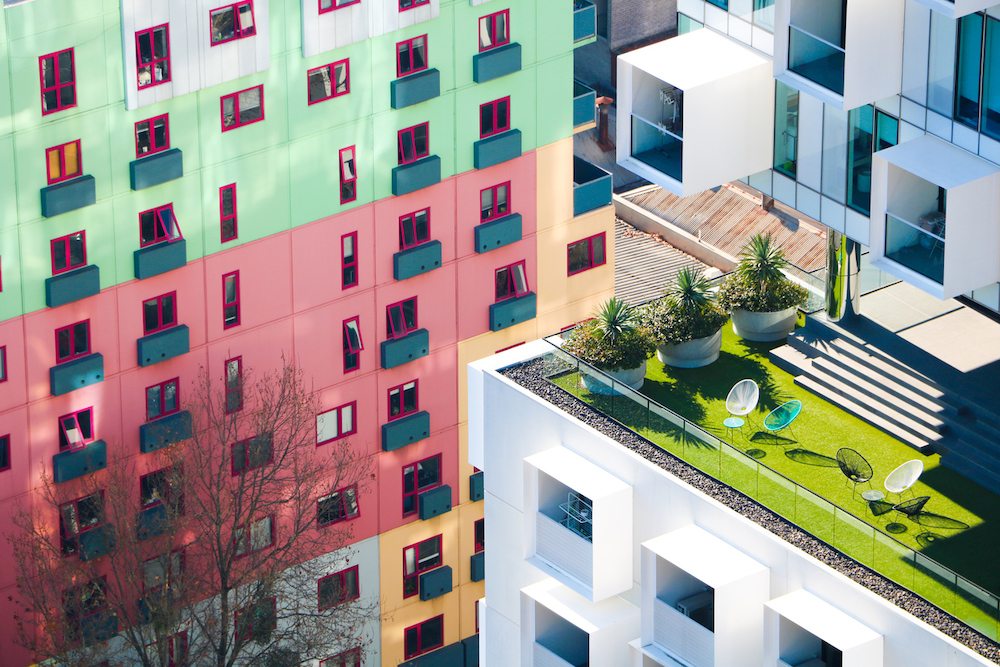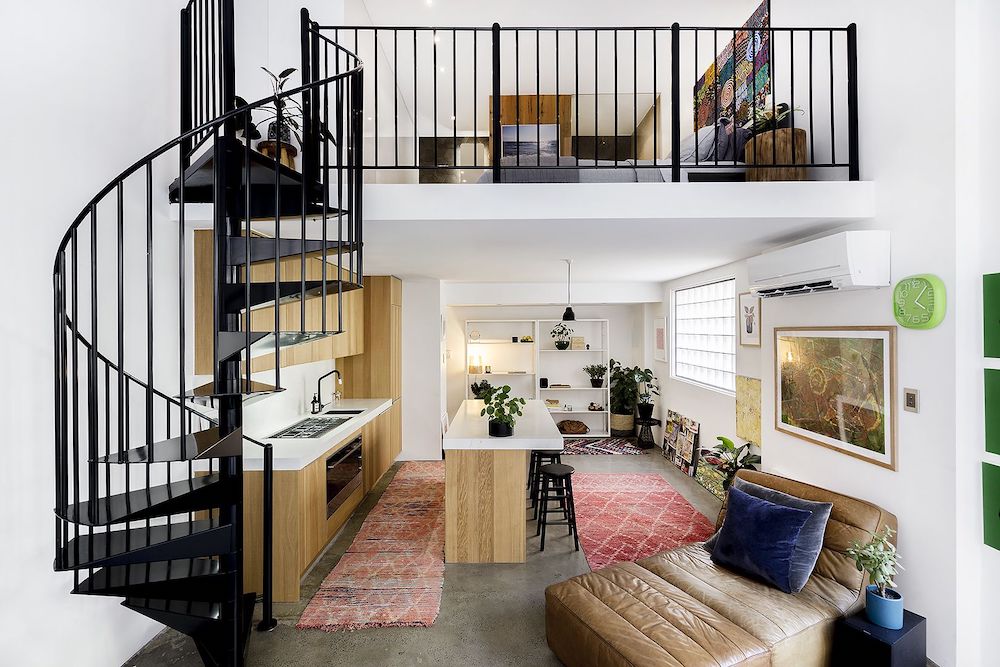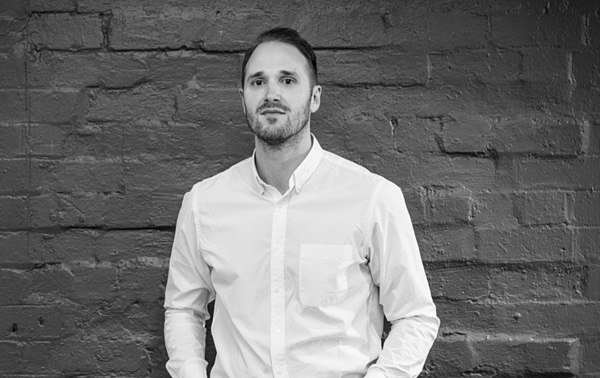While house prices hold strong, units may be staging a comeback
Learn more about our editorial guidelines.
This year, the conversation around Australia's property market boom has been dominated by talk of house prices.
There's an overarching narrative that the pandemic has pushed homeowners to abandon high-density pockets of capital cities in search of more space and a freer lifestyle.
On paper that shift appears to be broad-based and, consequently, a growing divide between unit and house prices has been trending.
CoreLogic's latest data shows that, where Australian median house prices have soared by +8.6 per cent so far in 2021, unit values are up just +4.7 per cent.
The effect is pronounced in Sydney and Melbourne where border closures mean the usual influx of international students and workers aren't filling apartments and media scandals around shoddily built highrises have soured attitudes towards big new developments.
But does that mean units are now considered a poor investment or something for first home buyers to avoid? Or is there more nuance to the story?
As it turns out, there are solid opportunities out there in the unit market for informed buyers and sellers, and it's not all doom and gloom across the board.
We sought analysis from an industry expert and an agent in an area undergoing significant change.
Why are units reportedly underperforming, and is it happening Australia-wide?
The move away from density is a rational response to a pandemic, says Pete Wargent, COO and co-founder over at buyers platform BuyersBuyers.
"People generally want a bit more space, and also there's been a big opportunity for people to work from home," he says. "So that has also lent itself to a general shift towards coastal and lifestyle markets."
As a result, "just from a statistical point of view, the divergence between house and unit prices is at the widest level it's ever been."
Mr Wargent explains that, especially in Brisbane, Melbourne and Sydney, unprecedented rates of construction since 2013 had created an oversupply of high-density units aimed at overseas investors, an issue which has been exacerbated by Covid now that borders are closed.
"I think in Brisbane's case the market is tightening up now, but certainly in Melbourne there's a lot of empty units around and the rental market is really weak," he says.
Rents have taken a dive in certain inner-city suburbs over the past year, in part because many offices in capital CBDs are still operating at reduced capacity and the elimination of overseas arrivals.
"The CBD and city fringe unit markets tend to be quite focused on student rentals, short-stay lets, international tourists," Mr Wargent explains. "A lot of the demand comes from a new inflow of people into the country which just isn't happening at the moment."

Not all units are made alike, though, and factors like property age, block density and location can have a major impact on price in the long run.
"In the more mature housing markets like Sydney and Melbourne there's a bit of a distinction between stuff that's been built in the past decade and the more established boutique unit blocks that have tended to do much better," he says. "They tend to be smaller developments in terms of the number of units, and it's more about land value.
"A lot of the new stuff that's been built has been very very dense and small, small units. The land value component might be 2 or 3 per cent in those units, and you're really just buying air space."
Those older properties that have stood the test of time and offer more in terms of space and land value are appealing more and more to buyers who have been priced out of the house market and are searching for an alternative.
"In Brisbane, we've already seen this happen, people have shifted towards units, particularly in some of the more popular blue-chip areas, and I think that probably will start to happen now," Mr Wargent predicts.
Not every city's unit market seems to have been negatively affected by Covid either—in fact, some are thriving.
"If you're in Adelaide or Darwin or Hobart, vacancy rates are so low," Mr Wargent points out. "If you take Hobart, the unit market is burning up, it's doing really well."
Median unit prices in Hobart have outperformed houses so far this year, growing a staggering +9.6 per cent against houses' +8.5 per cent rise according to CoreLogic data.
Units in regional Victoria and NSW have also had an especially strong year, keeping mostly in line with houses and getting boosts of +9.2 and +7.0 per cent respectively.
What do sellers and buyers need to consider?
There are still wise purchases and sales to be made in the unit market, Mr Wargent explains.
"Personally, I would look towards the more established unit stock rather than stuff that's brand new or a couple of years old," he says. "When something's bedded in, the teething issues are no longer there.
"I would generally say you would always want to take a bit of care buying off the plan because statistically, you're more likely to lose money."
In the current market conditions, attached properties that appeal more to owner-occupiers are tending to fetch better results and proving to be prudent longer-term investments. This usually means blocks with fewer units.
"By definition, the bigger the development, the less scarcity there is in the product," he says. "And a lot of the new stock that's been built, even the two-bedders, they're so small. If you can get a bit more space then that would be desirable."
Another potential pitfall to avoid is properties with high strata fees that may be offputting to future buyers. Developments with pricey pools, gyms and concierge services "can be a bit of a sucker trap because when you come to sell it's just a big liability hanging over the next buyer."

Smaller blocks that require less upkeep look to be particularly attractive.
In terms of what to expect in the future, Mr Wargent suspects once the international border reopens there will be a new wave of buyers to bolster the market, and the economic conditions will play a key role too.
"I think the big picture is interest rates are going to stay low for the next 2 or 3 years," he says. "I guess there'll be a spike in inflation next quarter but I just don't think we're going to get interest rates moving off zero for a long time to come, so there'll be a lot of demand for housing over the next 2 or 3 years.
"I think the affordability factor will probably drive some more buyers towards units."
He says investors are returning to the market in greater numbers now too, which will add demand and contribute to increasing unit values.
Ultimately, there are opportunities out there if you look in the right places.
"There are some really good units in Sydney, but the entry prices are high," he points out. "If you don't have the budget then it's tough. But, for example, some of the villa units that are close to Melbourne CBD would be worth a look.
"Unit prices in Brisbane haven't really moved for about ten years. So given what's happened with interest rates over that time, there's some pretty decent value around.
"You'd generally want to steer clear of the areas that get overdeveloped and stick to the more established unit stock."
A different perspective on inner-Sydney
While on the macro level the figures comparing units and houses don't seem so positive, zooming in for some local insight can unearth a different narrative.
Myles du Chateau, director and principal licensee-in-charge at RichardsElliot in the inner-Sydney suburb of Surry Hills, is especially optimistic about the current state of the market and the heights it's yet to reach, although it hasn't been smooth sailing to get here.
"Surry Hills was one of the top 10 hardest-hit suburbs [in Sydney] post-Covid because of hospitality, because of students not being there, because the culture and lifestyle events weren't happening," he explains.
That downturn hit rents hard. A one-bedroom apartment that may have been fetching $700 per week in the past had dropped to the $500 to $550 range, he says, suggesting that investors in the area began to weigh their options and consider selling up.
"What I saw was in March that effect starting to happen. Investors going 'well look, the rental market's not correcting itself—it is incrementally increasing, it is getting better, but not in a major way.'"
One such client of Mr du Chateau's, who had held an investment unit in the area for more than 15 years, decided to finally part with their property which was getting low rental returns. It ended up achieving a sale price they were very happy with.
He explains that this was the first sale in a series of investors seizing a moment where it made more sense to sell and capitalise on the high demand from first home buyers than to persist with low rents, and that this attitude is becoming more and more common.
"The sales figures are just head and shoulders above the analysis between what a landlord might be getting for rent on an annual basis or a three-year basis, so they're cashing in right now and selling at what's a pretty peak market," he says.
The influx of first home buyers and owner-occupiers is also changing the landscape of the local market.
"For Surry Hills and surrounding inner-city suburbs, seven out of ten buyers I'm meeting are home occupiers," he says. "They're buying the property to live in.
"Before Covid, it was probably 50-50, but for properties that were nicely parcelled in good areas that were fair to affordable, it would probably flip in favour of investors wanting to buy them."
Mr du Chateau says the eagerness of those first home buyers to get into the market are potentially causing a rapid increase in apartment values around these inner-city locales.
"In turn that's now potentially starting to bleed into your more saturated markets, areas like Alexandria, Waterloo, Zetland. These are markets now where—if one can't buy in the more established markets in Surry Hills, Darlinghurst, those inner-city predominant suburbs—they're now starting to look into the more saturated markets, so I think they're actually going to potentially lift in value."
11/102 Albion St in Surry Hills is a recent apartment sale that Mr du Chateau thinks exemplifies the improving health of the local unit market.

"All in all it's a phenomenal, completely tailored apartment, it's fully custom, it's a masterpiece of a unit," he notes.
"But on paper, it's a one-bed, one-bath, one-car space apartment. one-one-one."
The apartment sold in mid-May for a whopping $1,150,000, a figure that he says is the highest price ever for the Albion St complex (which also has two-bedroom stock) and "would probably be one of the highest prices ever for a one-bedroom apartment for that precinct of Surry Hills."
For that money, he says, "two years or a year ago potentially, you could have got an entry-level two-bed semi in Marrickville, Stanmore, those kinds of [Inner West] areas." So is the unit market on the rise? "One hundred per cent."
What does the future hold?
When considering what comes next, Mr du Chateau takes a philosophical approach.
"For a start, we live in pretty unprecedented times, and I think the important thing for people thinking of selling is there's always going to be what-ifs," he reflects. "'What if I hold onto the asset, will it go up in value?'"
The shock to the system provided by the pandemic has, he thinks, refreshed people's perspectives on life and the future, and there may have been a shift in attitudes towards living in the present.
"Potentially this is the mechanism that is allowing investors to cash in on assets that they've retained so they can move on and enjoy their lives during pretty weird and different times," he continues.
"There are kind of generational moments when it comes to property, and I think this is one of those."
In terms of what Mr du Chateau is advising his vendors going forward, he says it comes down to a "life decision."

On the one hand, investors in particular can take a risk and see where rental figures go—"and I think they will rise as property prices keep coming up."
His prediction is that, as more potential buyers are pushed out of the areas they're looking to purchase, there will be a return to leasing that will push rents back up.
In a kind of vicious cycle, he expects those higher rents will further attract new investors to the market, once again increasing demand.
But, rather than playing the "medium to long term game," the alternative option to sell now and avoid having to speculate is proving to be "a pretty good trade-off for a lot of people."
"So maybe for people who were once dreaming of holding a portfolio for many many years, I think a lot of people have realised that life is finite, and there's this kind of mindset where if one can actually cash in now—and it is to a degree so strong that they're almost guaranteed a really good figure for a house or apartment in an established suburb—I think people are liking that security and going for it."


